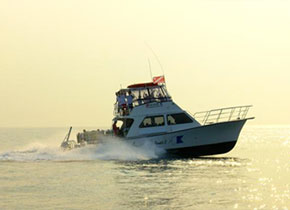Underwater Navigator Course
The PADI Underwater Navigator Course
Be the diver everyone wants to follow and make your sense of direction legendary with the PADI Underwater Navigator Specialty course.
The Fun Part
Finding your way is not a matter of luck! When everyone’s buzzing about a reef or checking out a shipwreck, they’re having a good time – until its time to go. Then they turn to you, because as a PADI Underwater Navigator, you know the way back to the ship.
What You Learn
Underwater navigation can be challenging, but in the PADI Underwater Navigator Specialty course, you master the challenge. You learn the tools of the trade, including navigation via natural clues and by compass.
You learn
- Navigation patterns
- Natural navigation (without a compass)
- Compass navigation
- How to “mark” or relocate a submerged object or position from the surface
- Underwater map making
- How to follow irregular courses with the Nav-Finder
- Dive site relocation
- How to estimate distance underwater
The Scuba Gear You Use
You will use the basic scuba diving equipment, some scuba accessories such as a dive slate and an underwater compass.
The Learning Materials You Need
The Underwater Navigator eLearning code is included in your course fee.
Prerequisites
You must be:
- A PADI Open Water Diver or Junior Open Water Diver (or qualifying certification from another organization)
- At least 10 years old
| Class: |
Dates & Times: |
Cost: |
Space
Available |
Details
| Minimum age |
10 years. |
| Course cost |
$200 per student. Secure your class spot and receive the learning materials with payment. |
| Knowledge Development |
Underwater Navigator eLearning code – included in course fee. |
| Additional expenses |
Cost of dive charter to do the skills dives with an instructor. |
| Equipment provided by student |
You’ll need a compass and underwater slate. Student is responsible for providing their own SCUBA gear or can rent from Aquatic Safaris. |
Your Next Adventure
Underwater navigation is an important skill no matter what type of scuba diving you’re doing. Its especially useful when night diving, wreck diving or when you’re searching to recover a lost item underwater.



